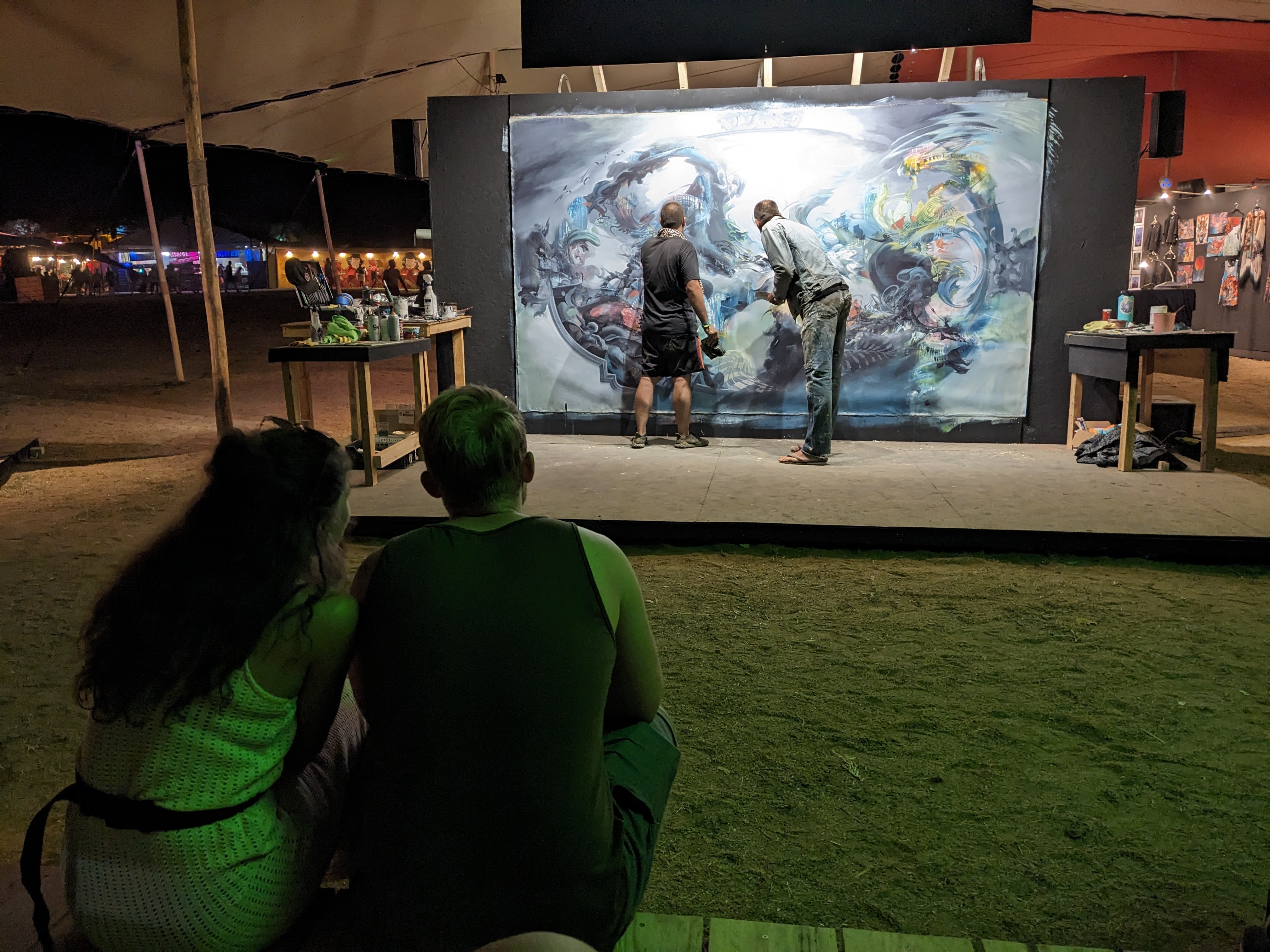في عصر قديم، عاشَتْ أسطورة موسى وشهيرة الشهيرة، الجميلة والأنيقة. لم تكن حياته مجرد قصة عادية، بل كانت كالحكايات الساحرة التي تجذب القلوب والعقول. ولد لهما ابن، سماه موسى، كما ورد في السجلات القديمة. ولكن هل كانت نهاية القصة؟ لا، بالطبع لا. لأن في عالم الخيال والحكايات، كل شيء ممكن، حتى السحر والمفاجآت الغير متوقعة. فلنتابع القصة ونرى ما الذي يخبئه المستقبل لموسى ولسعيه إلى السعادة في عالم سحري وخيالي
¡We🔥Come!
⁎⁎⁎ ⁎⁎⁎ X ⁎⁎⁎ ⁎⁎⁎
*** *** Y *** ***
VS
[Scene: Night. A Siberian prison cell].
Frost crawling over the inside of the window like ancient script. Somewhere between zero and nowhere. Somewhere on a spinning planet wrapped between cold and lava, orbiting a burning star. The kind of place where it seems there’s absolutely nothing left to lose.
But there is.
VOICE (raspy, shaking with intensity):
You know what I realized?
Even here — even here —
there’s one more place you can fall into.
Inside.
He stands still. Not in the cell — no, deeper. At the edge of a memory so vast, it hums like machinery behind the walls of thought. One more breath, and the floor beneath time will vanish. No going back. Only down, into the architecture of silence that built the man he thought he was.
Falling inside…
that’s the one fall no one prepares you for.
There’s no witness.
No scream.
No hand reaching to pull you out.It begins without sound.
Only a slight dislocation.
Like the thread of time slipping in your grip.Memories start to collapse into each other —
out of order,
but more accurate than ever.You realize you're remembering more than just events.
You're remembering atmospheres.
The tension in the air.
The silence between words.
The way people avoided looking at you —
like your deep pain might be contagious.You remember how nothing happened,
and yet everything did.
How a hallway could hum with meaning.
How a teacher’s voice could sound like mercy —
or punishment — depending on the angle.Your body starts assigning weight to the fragments:
the pause before someone speaks.
The slight delay in a friend’s reply.
The kindness that felt rehearsed.And suddenly, you're not just remembering.
You're decoding.
VOICE (not accusatory, just tired):
That’s when you realize…
you were never really living.
You were being calibrated.Not with commands —
but with disapproval.
With the absence of praise.
With looks that said:
Not like that.So you adjusted.
Again. And again.
Each time just a little.
Until the person you were
became the instrument
someone else could play.In this silence —
where snow presses against concrete like a waiting priest —
you see it:
a monument.
Not made of stone,
but of every unspoken rule
that shaped your every choice.A civilization carved
not from intention,
but from omission.
VOICE (now barely audible):
And when you see that structure —
the cathedral of everything that was left unsaid —
you understand the horror.The design was always there.
It just needed the right silence
to be heard.No cell can hold you tighter
than the one that was built
inside you,
with you,
as you.And the question that remains —
isn't whether you’ll survive the fall.It’s whether you’ll ever
return
with something worth bringing back.
VS++
[Scene: Post-War Interrogation Office 4C — Behavioral Signal Unit]
Fluorescent lights hum overhead. The camera in the corner is off — or at least pretending to be. A glass of water sits untouched on the table. The young programmer blinks slowly, as if syncing his internal processor to the room’s rhythm. Across from him, the investigating officer, dressed in the slate-gray formality of a post-authoritarian state, adjusts the margins on her tablet as she resumes the line of questioning.
OFFICER (without looking up):
“So, you maintain that your article, ‘The Dual Nature of Thought’, did not incite extremism?”
PROGRAMMER:
“Mademoiselle, that is correct. I stated nothing that could reasonably be classified as incitement.”
She stops. Not at the words — but at the tone. This boy — no, this man in disguise as a boy — is answering like an attorney. Too fluent. Too precise. Like he knows what she's allowed to say next. It’s unnerving.
She sets the tablet down. The stylus trembles ever so slightly between her fingers.
OFFICER (slightly more personal):
All right then.
Let me ask differently.
What is this... ‘wave-based thinking’?
PROGRAMMER (nods, relaxed):
“Oh, that. Very simple.
Decision-making is a form of wave-function collapse.
A concept from quantum mechanics.”
OFFICER (dryly):
Perhaps you could explain it in a way that doesn’t require a PhD in physics?
PROGRAMMER (smiles faintly):
“Gladly.
Take your uniform, ma'am.
The shape, the badge — that's the particle.
A physical object. Something that can be seen, touched, obeyed.
But the idea behind the uniform — that’s the wave.
It exists in potential.
It radiates.
It’s felt before it’s measured.”
He leans in just slightly.
“When someone sees you walk into a room,
and their internal reality shifts,
that’s wave collapse.
The meaning becomes real,
based on how they interpret your form.”
She looks down at the evidence pack again. AI-generated images. A surreal mindmap scrawled in recursive loops. A Matrix-themed animation layered over classical music and the Oath of Allegiance.
She asks, more from discomfort than curiosity:
OFFICER:
“And all this… what’s it for?”
PROGRAMMER:
“Ah. Now that is the right question.
It’s like you’re part of my thesis panel.”
He pauses — respectful, ironic, disarming.
“You see, in post-Soviet schools,
from the very first grade,
children are taught the idea of inevitable war.That at any moment,
someone could arrive with a weapon,
and drag you into their dream of order.War becomes a portal —
a method for external minds
to overwrite your personal reality.And the question is:
Why is war legal?
But a thought — an idea — can be called ‘extremist’?”
VS++
(Location: Basement 12, former tram depot outskirts. Entry by biometric bypass only. Names unknown.)
They gathered like always. Fifteen maybe. Maybe more. Old fluorescent tubes buzzed like insects in coma. The room reeked of soldering fumes, burnt plastic, and the false comfort of routine rebellion.
They called it the Club. They used to feel dangerous. Used to.
Until that night.
He came in without knocking. Without code phrases. No nods. No performative respect for the rituals they'd rehearsed to feel like fighters.
And yet — no one stopped him. Because something in the air… shifted.
His coat — dry. His gloves — too clean. His face — unreadable, like an error screen in a foreign language.
He stood near the flickering projector and spoke in a low, unhurried voice.
What you’re doing here is cute.
A chuckle in the back. Nervous. He didn’t even glance that way.
Your memes.
Your podcasts.
Your dead drops...You think you’re resisting?
No. You’re echoing.
You’re repeating old frequencies
with no modulation, no amplitude,
no bite.
He walked over to the whiteboard, wiped it clean with his sleeve. His handwriting was sharp, mathematical — no curves.
WAVEFORM = SIGNAL x RECEPTOR x MEMORY
The state doesn’t fear protests.
It doesn’t fear hashtags.
It fears symbols.
It fears resonance.
He underlined memory.
They don’t need to erase truth.
They just flood the spectrum
until your signal becomes a whisper
you no longer recognize as your own.
He turned to the room.
Not with judgment. With recalibration. He was here not to convince — but to tune.
I know what you think you're doing here.
And I know what the generation before you tried.They believed in impact.
In disruption.
In noise.They believed if they just set fire to the right building,
broke the right glass,
fired the right bullet —
the signal would cut through.The Red Army Faction thought that violence was the only key
to unlock a door that television had bolted shut.
They believed that blood on the lens
would make truth unavoidable.
He paused. Let history settle into the dust.
But television adapted.
It learned to frame violence,
to contextualize it,
to turn even raw terror into background noise.RAF members failed.
Not because they were wrong about oppression —
but because they were trapped inside a medium
that wasn’t built for rupture.
Pause again.
Then came the internet.
At first, just newspapers on a screen.
Then an interactive TV.
Controlled. Monitored. Comment-enabled.But that phase is over.
His tone changed.
Today, the net is not a screen.
It’s a Construct.A parallel civilization —
not an extension of the old,
but a birthplace of the next.Boys build castles in Minecraft
without permits.
Teenagers form sovereign chatrooms
without adult supervision.
There are new cities —
cities made of shared dreams
built entirely from digital stone.That’s what the old powers don’t understand.
They still guard the TV tower,
as if the revolution wants airtime.We don’t want airtime.
We want altitude.
He walked slowly across the room, like a conductor readying an invisible orchestra.
Every civilization has a central frequency.
A deep tone — carried by temples,
cathedrals, alphabets, alphorisms.Sometimes it shifts naturally.
But more often — it’s forced.Terror and violence have always been the hammer and chisel
for reshaping culture.You want a new society?
You crack open skulls
and carve new instincts inside.
A bitter smile flickered.
Stalin understood this.
That’s why he built camps in places
so cold even memory freezes.You didn’t just serve time.
You were recalibrated.
And if the first sentence didn’t do it —
the second would.The gulag wasn’t punishment.
It was the f*cking upgrade protocol.
A few flinched. Others… nodded.
But we’ve reached a new threshold.
We have better tools now.We don’t need bullets to break a code.
We can embed a new one.That’s why they fear us.
Not because we’re loud.
But because we're finally quiet enough to aim.
He returned to the center.
They prepare for uprisings.
But this… this is not an uprising.
This is a migration.
A movement of minds
from old instinct to new protocol.
He leaned forward — slow, deliberate.
You know who feared migration the most?
Pharaoh.He didn’t chase the Israelites
just because they were cheap labor.
He chased them
because they carried a different signal.A code incompatible with Egypt’s.
One that was beginning to resonate
even inside his own borders.
He paused — letting the myth settle like truth. And then, he raised his voice — just slightly:
Hitler understood this far better.
He didn’t just use violence.
He used aesthetics,
architecture,
choreographed light
and symphonic speeches
to rewrite the German signal.He gave the people
not just a dream —
but a mirror
in which they looked powerful.And then — he weaponized that mirror.
He stopped — not for breath, but for echo.
As if he wanted to test the weight of his own words,
to feel what that mirror really reflected back then —
and how many still haven't looked away.
Then, he continued.
But when Allied boots hit Normandy,
it wasn’t just to reclaim land.
It was to erase an alternative signal
before it infected the rest of Europe.The invasion was not just military.
It was a signal reboot.A return to the previous narrative arc
of civilization.
He turned, and tapped a projection: The Eiffel Tower, intact but shadowed. The Reichstag burning. The Statue of Liberty under scaffolding. TikTok feeds pulsing. A child in Tokyo dancing to a sound from Nairobi.
Civilizations don’t fall from bombs.
They fall when the signal is replaced.
Quietly.
Elegantly.
One meme, one dream, one untraceable ritual at a time.Every war was a formatting attempt.
A reinstallation of what should be remembered.
And what must be forgotten.
He walked to the center again.
The old guardians still protect the physical keys.
But the real vaults are cognitive.
Emotional.
Ritual-based.
Hidden in how we explain ourselves to ourselves.And here’s the moment we’ve waited for.
He held up the disc again.
Simple. Silent. Black.
“Give a little smile to your dreams.”
He smiled — not out of arrogance,
but almost with tenderness,
like a man watching children play
near the edge of a cliff.
A smile that said,
“You don’t see it yet.
But that’s okay.
I forgive you.
I’ll walk you through it —
just like Christ,
bleeding and patient,
still explaining the parable.”
You see? We now have the tools
to rewrite the signal
in a language
the previous civilization
has no antibodies against.No firewall.
No censor.
No detection system
for the dreams
we’re about to plant.
He placed the disc down.
This is not an attack.
It’s an upgrade.And by the time they realize…
the code will have already rewritten itself.
He smiled — not with victory, but with clarity.
Now ask yourself —
will you guard the old tower?
Or will you help transmit
the next signal?
VS++
[Scene: Berlin police station, late evening]
Outside — wet streets, distant sirens. Inside — the hum of flickering lights, old coffee, damp coats. On a wooden bench: a drifter, tense and alert, eyes flicking between faces. Next to him — a philosopher, tired but focused. He speaks slowly, deliberately. Not just to the man beside him, but to the officer behind the desk, who pretends to be busy but listens very, very carefully.
PHILOSOPHER (soft but sharp):
— You see, my friend,
thinking isn’t just about thoughts.It’s like light.
Sometimes a wave,
sometimes a particle.
The drifter doesn’t reply, but doesn’t walk away either. He watches the floor. He’s heard talk like this before — and it never ends simply.
PHILOSOPHER:
— Culture is like DNA.
And DNA… is not alive.
It’s just a code.
A protocol.
A sequence that instructs how to build a new cell
from whatever raw materials are available.
He taps his temple, then the table.
PHILOSOPHER:
— Now imagine:
The world, through the eyes of DNA,
is just a replication field.
Copies, copies, and more copies.DNA doesn’t know why it’s copied.
It just is.
Nature — the mother — does the copying.But we know.
The officer shifts slightly. He’s still listening. The drifter does too, a little more now.
PHILOSOPHER:
— And here’s the trick:
Patterns that appear at the micro level
tend to repeat on the macro scale.DNA replicates cells.
Culture replicates nations.
He leans in, voice quieter now, more intimate.
PHILOSOPHER:
— A nation’s DNA lives in its texts, myths, rituals, and symbols.
These are the instructions.
The code.We, the people?
We’re just cells in a bigger tissue.Our minds carry the waveform —
the living, pulsing essence of the culture.Our actions?
That’s when the wave collapses into particles,
into decisions, into events.
The drifter finally looks up. The officer stops pretending to write.
PHILOSOPHER:
— If a person is a cell,
and a nation is a tissue,
then all of humanity is a single organism
living by the rules of quantum duality.Wave and particle.
Myth and execution.
Vision and collapse.
He lifts his hands briefly, palms open.
PHILOSOPHER:
— That’s why every great moment in history —
a war, a revolution, a voyage into space —
feels both inevitable and sudden.It’s just the waveform collapsing
into a form the world can finally see.
A flag planted.
A step taken.And somewhere behind it —
an old story,
folded in symbols,
written long before anyone knew
they were going to live it.
VS++
[Scene: Prison Canteen. Early shift.]
The metal clatter of spoons on trays. The scent of boiled cabbage, bleach, and something unspeakably ancient. The philosopher sits down with his tray, across from the same drifter. He knows they’re still watching. Not just watching — studying. Sometimes too obviously. Sometimes too absurdly. Sometimes... it's almost funny.
PHILOSOPHER (calmly, continuing mid-thought):
— But you see, my friend... Civilization has one huge advantage over DNA.
DNA can survive. But civilization can redesign itself.
He picks up a slice of bread, tears it slowly, speaking as though it were scripture.
PHILOSOPHER:
— In nature, the best DNA is the one that stumbles into survival.
Random. Blind.
A slow crawl through the mud of probability.But in human culture?
We don’t wait for accident.
We create the person
who creates the signal
that alters how culture replicates itself.
PHILOSOPHER:
— The Jews understood this first.
They turned text into a transmission device.
The Torah — not just a book,
but a carrier wave,
a beacon to the future.Every ritual, every holiday,
is a checksum for cultural DNA —
a test to make sure the symbol still copies.
He glances sideways — the prison officers nearby try to look disinterested, but one of them sighs too loudly, theatrically stabbing a fork into mashed potatoes. The philosopher smiles, just barely.
PHILOSOPHER (steadier now, as if reciting from a manual of sacred architecture):
— Christianity took a different route.
It wasn’t just about preserving a cultural signal —
it was about creating a living protocol for service.
A mission embedded within history,
not carried forward by institutions alone,
but by faithful replication of its core event:
the life, death, and resurrection of a single man.
PHILOSOPHER:
— Jesus wasn’t just a teacher.
He was the mechanism —
a symbolic and biological interface
through which the spiritual logic of renewal
was inscribed onto human memory.
PHILOSOPHER:
— The crucifixion is what we might call
a controlled collapse of the waveform —
a moment of absolute suffering,
public, irreversible —
meant to etch the need for transformation
into the collective soul of the species.But the resurrection —
ah, that’s the continuation of the thread.
The promise of reloading the system,
not with more data,
but with a new level of being.
He leans forward slightly, and his voice softens.
— That’s the paradox.
Christianity isn’t just a set of teachings.
It’s a living code —
a recursive architecture
that contains within itself
the logic of its own update.
He lowers his voice slightly, like shifting into a new layer of the story.
PHILOSOPHER:
— And once that principle was understood,
scientists —
post-war, post-dogma, post-miracle —
decided to try something similar…But in biology.
PHILOSOPHER:
— They found something.
A part of the brain —
previously active only during puberty —
responsible for structural transformation:
of bone, of skin, of voice, of thought.
And they asked:
What if we never turned it off?
PHILOSOPHER:
— That was the birth of the bio-cognitive upgrade model.
Not therapy.
Not surgery.
But the continuous reinvention of the human body
from within itself.A neural switchboard
quietly monitoring the state of the organism,
analyzing weaknesses,
predicting breakdowns,
initiating real-time gene edits.
PHILOSOPHER (eyes narrowing):
— It's sort of biological nanobots
installed directly into the human body.We called them DNA prophets.
Cells that don’t just replicate,
but question the instruction
they’re about to pass on.And if the pattern seems flawed?
They rewrite it.
On the fly.
PHILOSOPHER (almost smiling):
— That’s not mutation.
That’s repentance on a cellular level.The genome as a religion.
And your body —
a church
in the middle of its own Reformation.




